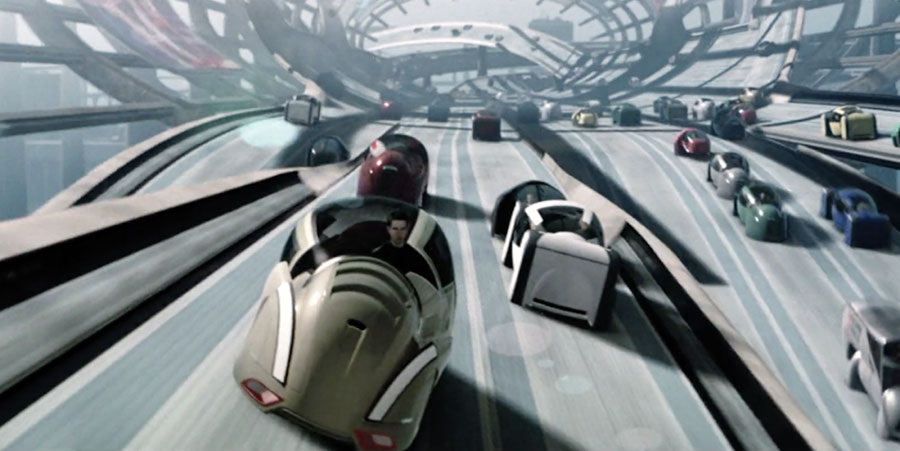The future of (driverless) cars

I was listening to the news this week about Nissan and Google developing driverless cars. One big issue that the story brought up was "Who is responsible when an accident happens involving a driverless car? Is it the passenger or the manufacturer of the car responsible for the computer program?" It's a legitimate issue if you think of the future with driverless cars with the same lens of today's driving habits.
We need to look at the future of cars differently. I think car ownership will not be part of the future. Instead, cars will be treated as utility, meaning we only use them when we need them. Think about it. Cars sit in garages and parking lots most of the day. They are driven by their owners one or two hours of the day. So, what if driverless cars roamed around the city and they are summoned when needed using your smartphone. Uber, a San Francisco-based company, is already doing this by offering rides with a tap of the button on their app. A car (with a driver) comes in minutes. It's amazing.
In order for this "future" to work for people that need car rides everyday, I think it will need to be a subscription service instead of a per-ride fee like we charge now. For example, you pay $400 for 1,000 miles per month. This fee includes your monthly car payment, gas, insurance, and maintenance like oil changes, repairs, etc. Each driverless car is serviced by the company and is responsible for the above. If there's an accident, they will take care of it. You don't need to worry about these things. Maybe you could pay upfront and have lower monthly subscription fees. Maybe you can get credit for non-rush hour rides.
"Well, why not improve public transportation?" Unless you live in a big city like New York, most of the time you still need a car to use public transportation. If you live or work more than one mile from a bus stop, it's not practical to walk or bike for time, health, or weather reasons.
One other benefit to a driverless on-demand car is that carpools are easier to manage. Imagine you're headed home from the office and you call for a car. As the driverless car picks you up, it will look for would-be passengers nearby and see who is heading to the same destination. It picks everyone up and you have an instant carpool. (If you don't like a carpoolmate, just tell the service and it will never put you two together again.)
The service will also know your family needs. It will have profiles of your family so if you're going somewhere with a family of six, it will only send a car large enough to bring your family.
Here are some other practical uses for driverless cars: pick up and drop off kids for school or ballet. You call up the car and they take your kids to wherever they need to go. This is my favorite thing about the driverless cars, you don't need an adult driver. It frees up the parents.
Optimizing driving in the future will require less cars and result in less pollution. Costs can also be offset with (gulp) advertising.
These are all great benefits in my mind when you combine driverless cars, mobile technology (Uber), a subscription model, and family profiles. How soon will this come?
Aug 29, 2013
